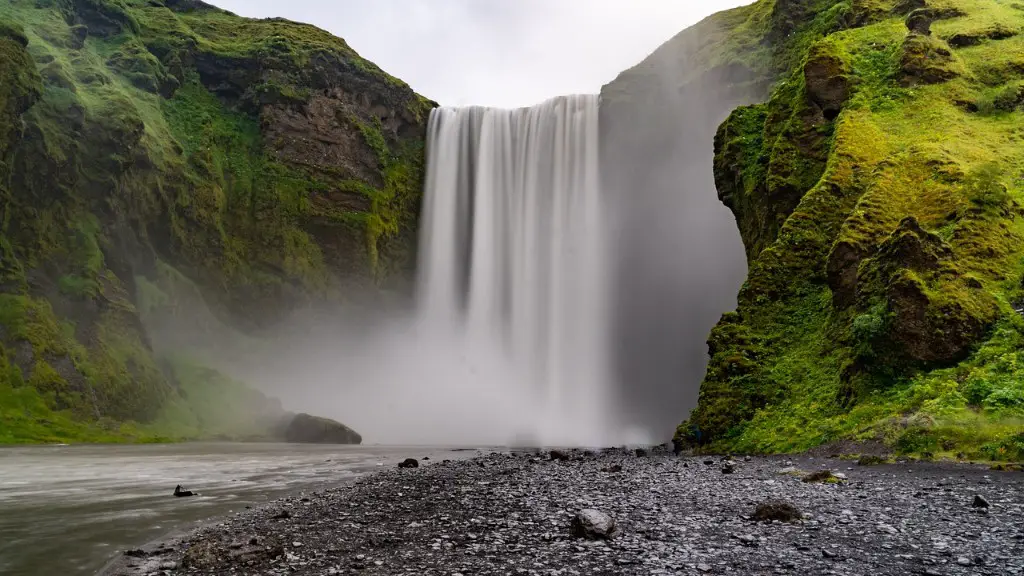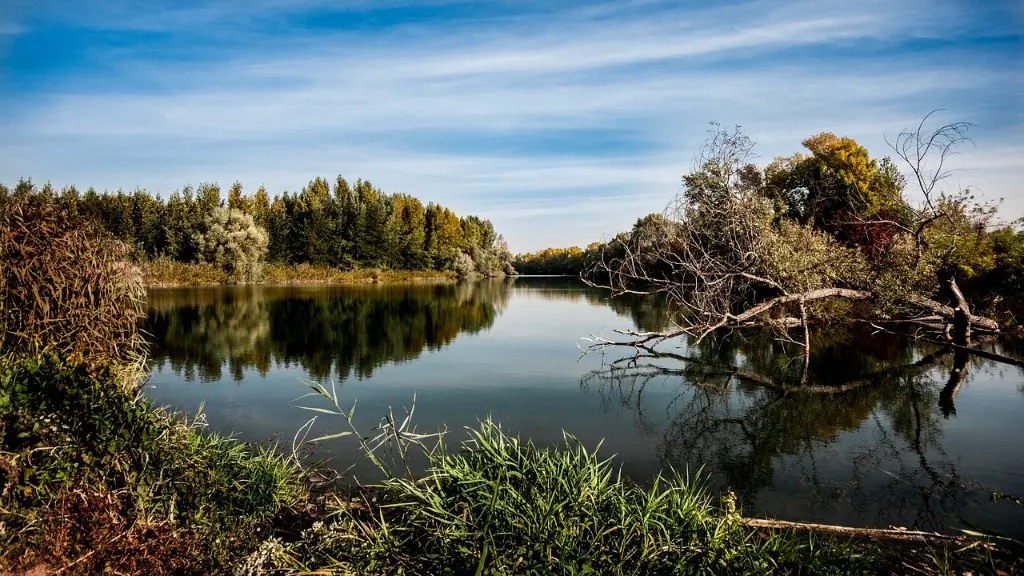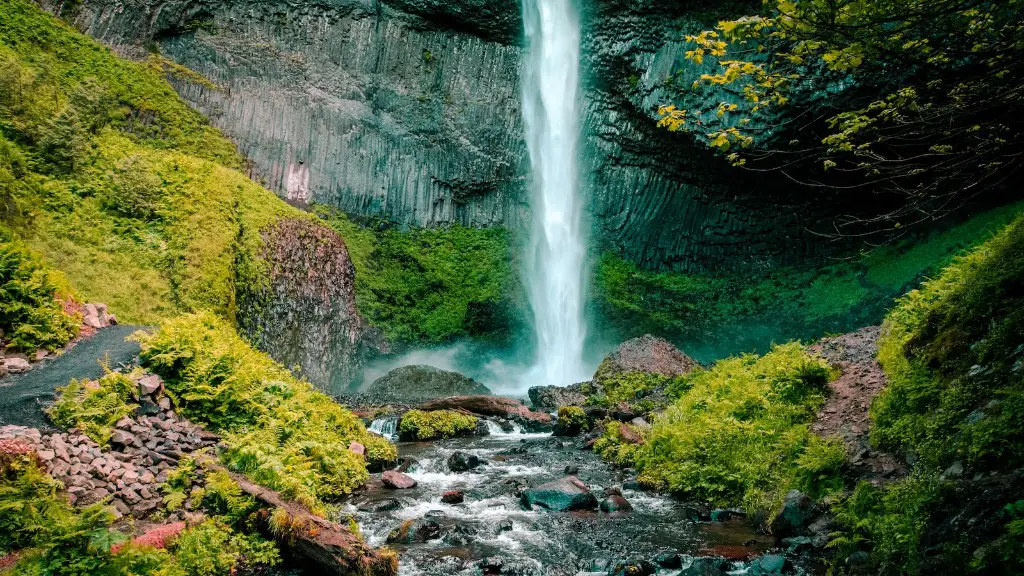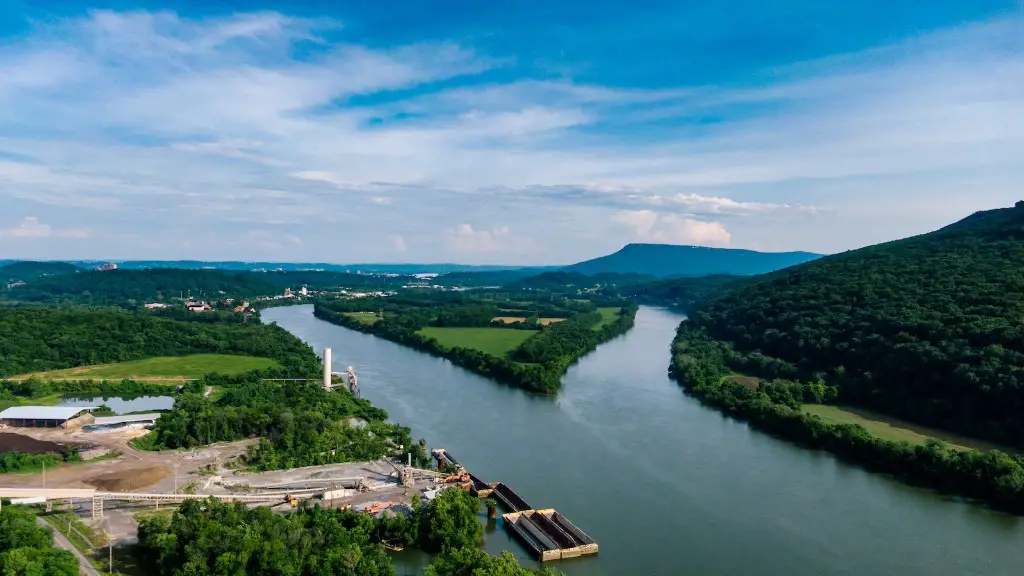The Yangtze River is the longest river in Asia, an iconic symbol of Chinese culture, as well as an important waterway for business and commerce. But for years, this mighty river has been facing an immense threat: pollution. To understand why pollution of the Yangtze is so dire, it is essential to look at how it has been impacted over time, the current stance of the Chinese government, and its long-term prognosis.
Historically, the Yangtze has been something of a double-edged sword. On one hand, it is essential to the livelihoods of millions of people; without the river, many would not have access to fish, or the ability to transport goods and resources. Unfortunately, this necessity has also caused significant human-made contamination. Unregulated, large-scale shipping, sewage, and agricultural runoff have long been major contributors to its pollution.
Today, the Chinese government is finally beginning to take action to reduce the contamination of the river. A national plan to protect and restore the Yangtze was released in 2018, including a $14 billion fund for environmental projects. In doing so, the government has prioritized water safety and pollution management, with over 650 environmental monitoring stations in place along the river. This has largely led to a vast reduction of pollutants, including a 30% reduction of Eutrophication (an environmental issue caused by excessive nutrients in the water) in certain areas.
However, the pollution of the Yangtze is still rampant today, as new projects begin and industrial developments expand across the country. These industries not only dump high amounts of pollutants into the river, but their infrastructure also causes the river flow to divert, leading to the increased degradation of water quality and the displacement of communities in the region. Additionally, deforestation and the population growth force have led to significant soil erosion, leading to unnecessary siltation which then accumulates and is carried downstream.
The long-term prognosis of the Yangtze is uncertain. The pollution of the Yangtze is a complex, long-term issue and is unlikely to be solved in the near future. However, if the Chinese government continues to prioritize environmental preservation, the actions of their national plan combined with greater oversight of industrial development could lead to a healthier, more habitable river for centuries to come.
Economic Consequences
Pollution of the Yangtze River carries a heavy economic burden, with massive amounts of money being spent on environmental damage each year. According to the Chinese Ministry of Finance, the total financial loss of pollution in 2017 was an astounding 245 billion yuan. This number not only reflects the high amount of resources being diverted to pollution management, but also the vast economic opportunities that are lost due to the pollution of the Yangtze. Furthermore, the costs of health issues, infrastructure damage, and ecosystem decline all add to the colossal economic loss.
This financial burden is likely to continue to rise and have significant economic consequences in the future due to a lack of government commitment. Despite the allocations of the aforementioned fund, many experts argue that the amount of money allocated is not nearly enough to effectively combat the problem. This suggests that the economic costs of the Yangtze pollution will merely continue in the years to come.
Moreover, the problem is exacerbated by the ineffective management of resources. In recent years, many areas of the Yangtze River Basin have suffered from water shortages due to the increased industrial activity and pollution across the basin. As a result, the local economies near the river are facing greater strain due to the lack of water and other resources.
These economic impacts of the Yangtze pollution illustrate why the Chinese government must decide to invest more heavily into saving the river. Without a shift in financial commitments, the Yangtze may become increasingly inaccessible for business, commerce, and its inhabitants.
Environmental Issues
The Yangtze River pollution not only carries a significant economic burden, but the environmental implications are grave. Various pollutants, such as heavy metals, excessive nutrients, and various chemical agents, have all been found in the river at alarming levels. This has led to an alarming decrease in its biodiversity and fish population, with some areas of the river unable to support its natural inhabitants.
The destruction of the ecosystem of the Yangtze River has also been heavily impacted by climate change. The river’s geological composition is increasingly threatened by higher temperatures, increased levels of sedimentation and water loss, as well as increased levels of water contamination. The combination of these factors have led to a decrease in the fish population and other organisms living in the river, exacerbating the already tremendous pollution problem.
The destruction of the ecosystem carries devastating implications that can reach beyond the Yangtze region. As the river serves as a vital source of food, water and other resources for millions of people, its destruction potentially carries global consequences. As such, the Yangtze pollution is an issue that requires greater international cooperation and attention in order to prevent further disaster.
Environmental Movement
Fortunately, the issue of Yangtze River pollution has gained increased international attention in recent years. As the destruction of the river rises, prominent environmental organizations and activists have started to raise awareness of the issue, both within and outside of China.
One of the most prominent of these activists is Ma Jun, the founder of the Institute of Public and Environmental Affairs. Ma and his organization have mobilized the public by raising awareness of the issue and advocating for greater government action. Their efforts have led to the relief of hundreds of communities across China and have systematically moved the government and public opinion in order to save the Yangtze.
Moreover, the efforts of ma and his organization has also been supplemented by other forms of activism, such as protest groups and petitions. By involving the general public, these approaches have further raised mainstream awareness of the crisis, thus leading to increased public action.
Despite this, the impacts of awareness and protest have been limited, as greater economic forces have been at play. As previously mentioned, the government and various industries have had considerable incentives to continue their practices. This has often overwhelmed the efforts of activists and protesters, thus limiting their ability to bring about tangible change.
International Cooperation
As the pollution of the Yangtze River carries grave environmental, economic and even global implications, many experts argue that international cooperation is key to resolving the issue. By increasing the number of international collaborations and research initiatives, countries around the world can better understand and connect on the issues of the Yangtze pollution.
Furthermore, by collaborating with experts from multiple countries, the Chinese government can also gain valuable knowledge on how to handle a problem as complex as the Yangtze river pollution. Additionally, greater collaboration with key institutions, such as the World Bank, can ensure that the Chinese government has access to sufficient funds for properly addressing the issue.
Moreover, international organizations such as the United Nations can play a key role in the resolution of the Yangtze River pollution. As the UN already has a strong presence in the region and has a detailed understanding of the wider Chinese context, it can become a driving force in the development of a long-term solution.
By increasing international collaboration and engaging with key stakeholders, the Chinese government can ensure that the Yangtze River is protected and sustained for generations to come.
Government Involvement
The resolution of the Yangtze river pollution requires strong government involvement and regulation. Despite the attempts of various organizations and individuals, the government of China remains the key actor in ensuring the longevity of the Yangtze.
The Chinese government must look to implement regulations that limit industrial and agricultural practices that may be damaging to the environment. By creating laws and standards that limit emissions and other pollutants, the government can ensure that companies and industries are more reluctant to dump their waste into the river. Additionally, greater oversight of construction and other related development in the region will reduce the displacement of certain communities and subsequently reduce their risk of environmental degradation.
Furthermore, the government must invest greater resources into the reduction of the Yangtze river pollution. As discussed previously, the current financial commitments are insufficient and must be increased in order to effectively manage the crisis. Additionally, the government must invest greater resources into the monitoring of the river and its inhabitants, as this can provide valuable data which can direct decisions for preservation.
Finally, the government must look to increase the public’s involvement in the matter. Despite various attempts, the general public remains largely detached from the issue. By educating the public and engaging stakeholders, greater public pressure can be created to encourage the government to take further action.
Conclusion
Overall, the issue of Yangtze river pollution is of immense importance – both for the people living in the region and beyond. In order for the government to effectively manage the crisis, a comprehensive, multi-faceted approach must be taken. This would include financial commitments, regulation, and public engagement, which could create the needed pressure for change.
While tackling this immense problem is complicated and resource-intensive, the rewards would be immense. By collaboratively reducing the pollution of the Yangtze River, its biodiversity and ecosystems can be restored, thus providing a healthier environment for the people living near its banks.





